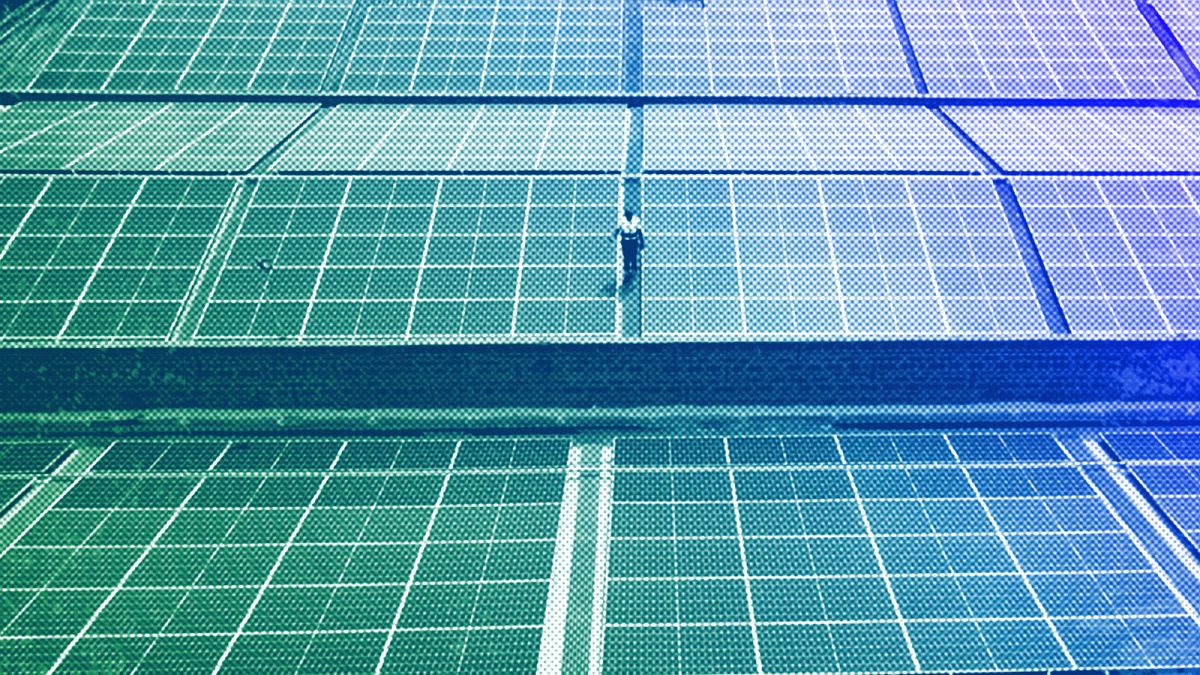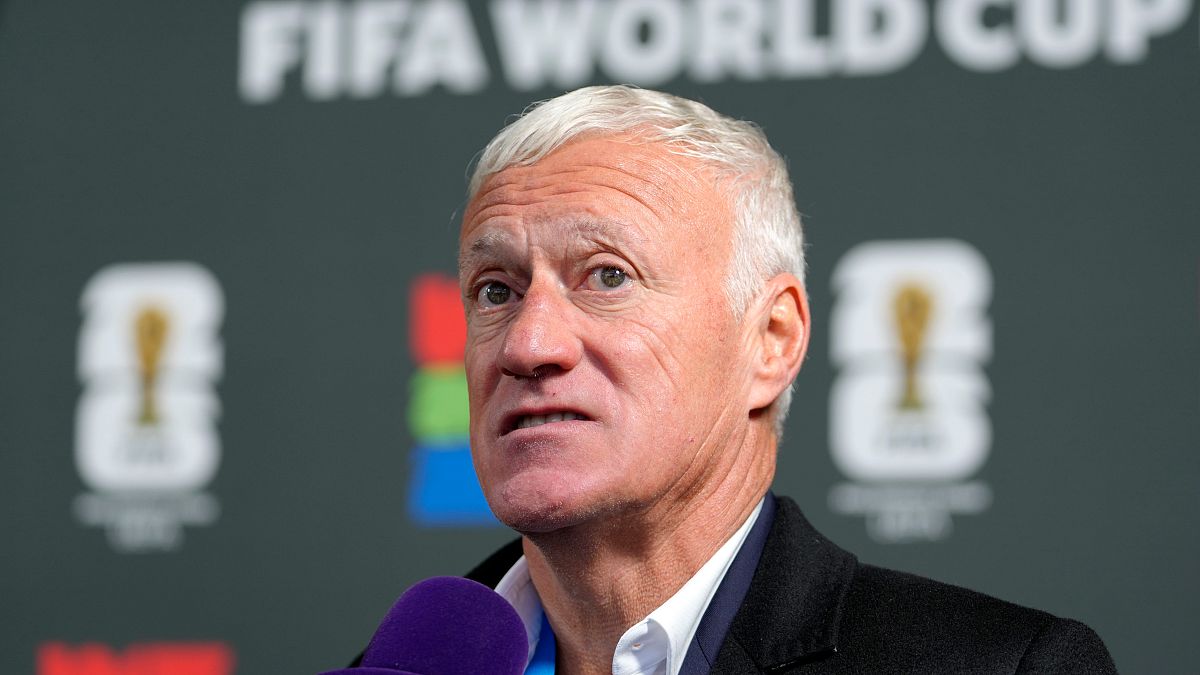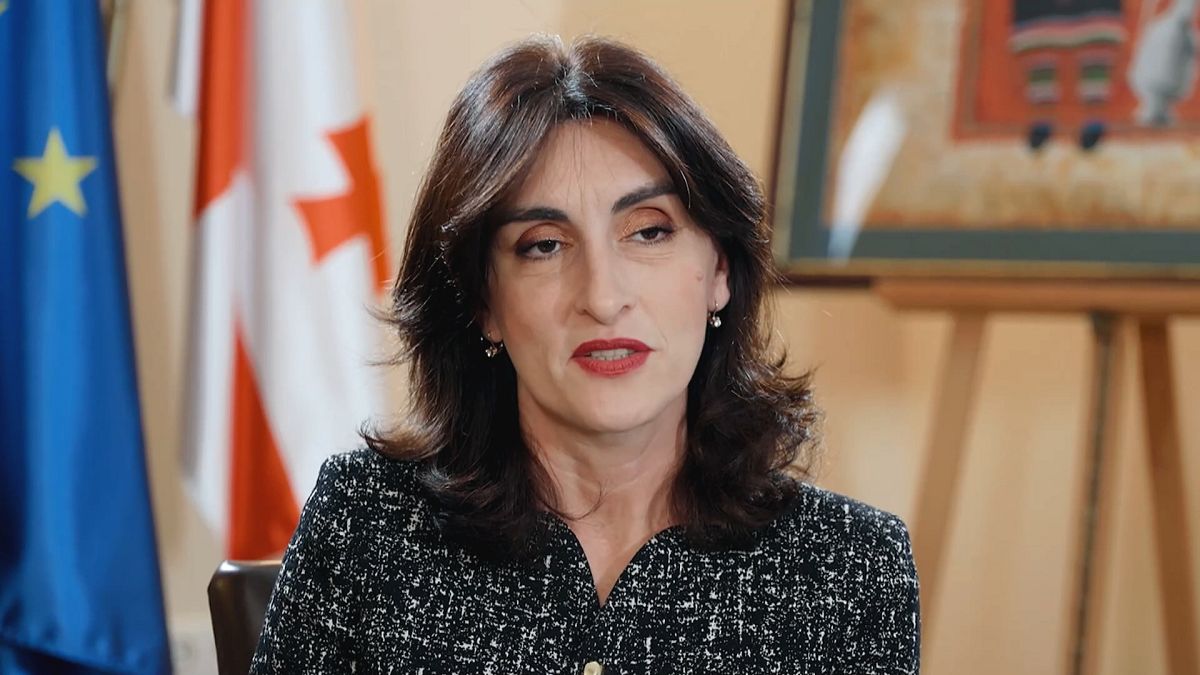Will we keep thinking of Africa even after COP28?

The opinions expressed in this article are those of the author and do not represent in any way the editorial position of Euronews.
Africa can play a key role in a future global green economy and might be our biggest source of hope with the right investments, Joseph Hammond writes.
COP28’s historic agreement to phase down fossil fuels embodies, in a way, a paraphrasing of Winston Churchill’s famous quip: not the beginning of the end, but the end of the beginning in a long and important struggle waged over the future of the environment writ large.
Nowhere is this more true than in Africa. While Western media tend to dub the continent as “the world economy’s biggest problem”, there are a lot of problems with that sentiment, not least that the inverse is true.
While Africa produces less than 4% of cumulative carbon emissions, the world’s second most populous continent will be home to one out of four people on the planet by 2050.
It quickly becomes apparent that Africa can play a key role in a future global green economy and might be our biggest source of hope with the right investments, and it will be critical for African nations to further their development in line with broader environmental goals.
Nairobi before Dubai
In this regard, it is worth noting that COP28 marked an important step forward for the goals laid out in the Nairobi declaration in September at Africa’s first-ever Climate Week.
The historic event saw 19 African leaders travel to Kenya — the biggest international summit in the country’s history just by the number of participating states.
The choice of Kenya was fitting. The country is at the vanguard of so many issues on climate change.
President of Kenya William Ruto has described carbon credits as an “unparalleled economic gold mine” and has promoted tree-planting and other environmental initiatives.
Congested yet lovable, Nairobi is also an important proving ground for the future of e-mobility partly because delivery services of foods, medicines and more remain vital.
The government has invested in charging stations and other incentives to make that future a reality. Thanks to the country’s vast geothermal resources, much of its future growth can and will be powered by clean energy.
The agreement at COP28 in Dubai was fully in line with the vision of the Nairobi Declaration which called for the world to act with urgency in reducing emissions, fulfilling its obligations, honouring past promises, and supporting the continent in addressing climate change,” as well as climate-positive growth paradigm.
Billions pledged, trillions needed
COP28 President Sultan Al Jaber has had his eye on Africa in more ways than one.
Masdar, the UAE energy company that Al Jaber leads as one of his many hats, has committed to fund 10GW of green energy in Africa.
Furthermore, at Africa Climate Week in September, Emirati investors pledged some $4.5 billion (€4.1bn) in investments in clean energy projects. These are opportunities African leaders should remember and not let by.
While Al Jaber was blasted in the Western press for a number of issues ahead of COP28, his ability to think laterally was key to his presidency and deliver the most successful COP summit in history — one that included several deals that could have a transformative impact for Africa.
COP28 saw the launch of a Loss and Damage fund which was agreed to last year at COP27 in Egypt, which is now poised to finally get some funding.
Albeit under $1bn when trillions are needed, it is something that has been in the making for thirty years, and COP28 has finally created the precedent and operational structure to get the fund off the ground.
This is the type of funding African economies clearly need. The African Development Bank Group’s chief economist Kevin Urama warned last year that climate change is clipping the annual growth of African economies by 5-15%. If true, this is intolerable.
Global capital should also seek ways to support green industries in Africa for other reasons as well.
In December of last year, President of Nigeria Bola Ahmed Tinubu called for Africa to become the world’s “green manufacturing powerhouse”. Until now much of that production has been based in Asia but, there are many reasons to make the switch.
This is why the $30bn (€27.3bn) that the UAE committed to clean energy investments at COP28 could have an outsized impact on Africa, a continent primed for steep solar expansion. The fund, intended to grow to $250bn (€228.2bn) by 2030, would be the biggest in the world.
A measured, carefully thought-out transition is needed
There are other reasons why Africa is well-placed to benefit from the impending surge in clean energy investments.
While a number of issues, including grave ethical and moral conundrums, have popped up with investments elsewhere, Africa presents an alternative and should be rewarded.
This topic needs to be a bigger part of the discussion at the next Africa Climate Week.
Again, Africa accounts for 3.8% of emissions coming from all of its countries compared to 23% for China. Green hydrogen presents the best hope for cleaner industrial processes and Africa is set to play a key role in its future.
The watershed agreement at COP28 to reduce fossil fuels has been criticised by some. Yet, the decision to “phase down” rather than “phase out” was a tactical one.
A just transition is just that: a transition which must be measured and carefully thought out; a process that will continue next year in Baku at COP29.
Joseph Hammond is a journalist who has reported extensively from Africa, Eurasia and the Middle East, as well as a former Fulbright Public Policy Fellow.
At Euronews, we believe all views matter. Contact us at [email protected] to send pitches or submissions and be part of the conversation.
Source: Euro News















